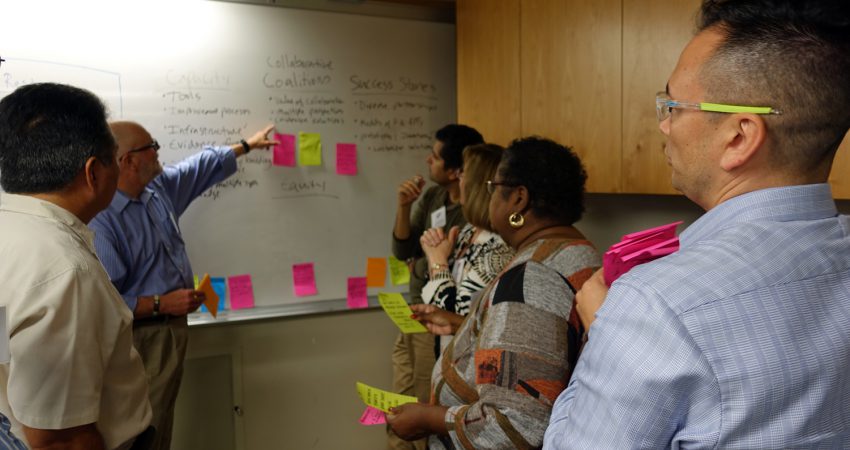
By Heather King - January 2012
PAPER CITATION
Kim, M. & Tan, A.-L. (2011). Rethinking difficulties of teaching inquiry-based practical work: stories from elementary pre-service teachers. International Journal of Science Education, 33(4), 465–486.
In this study, the authors sought to examine teachers’ views and understandings of science practical work, which in this instance refers to both inquiry-based activities and teacher-led manipulations of experiments and phenomena. The authors note that previous studies have found that teachers regard practical work as challenging and cite lack of support, limited time and limited resource as reasons for their reluctance to pursue it more. Additional training opportunities, involving for example strategies for coping with unexpected results and the development of greater pedagogical content knowledge, have been found to increase teacher confidence and enthusiasm for practical work. However, the study has also highlighted the interrelationship between teachers’ beliefs and their actions: without a change in belief, actions will not be sustained, regardless of tips and strategies learnt. But what sort of beliefs do teachers hold?
This study examined beliefs of Korean pre-service elementary teachers about the nature and value of practical work and identified five categories of concern that are given below:
1. Students already know the answer – This is of particular significance if students are additionally tutored outside the school (as is the case for many Korean students).
2. There is a need to teach the “right” concepts – Fear of unexpected results, plus a need for learners to acquire certain concepts in time for their examinations prevents many teachers attempting a more open inquiry based approach. In addition, many teachers view science as an established body of knowledge to be learnt.
3. When it goes wrong, you might lose face – This concern reflects the vulnerability that many teachers experience when new to the profession and new to science subjects.
4. It is fun but messy – Teachers are concerned that practical work and open-ended inquiry results in noisy overactive students and a situation contrary to their perception of “good” teaching.
5. Science is one of the many subjects – Practical work is seen as time-consuming and as a consequence impinges on other subject areas.
The authors discuss their findings in the context of Korean society in which teachers are still perceived to be experts and control their classrooms with quiet authority. They note that such concerns effectively limit the amount of practical work carried out in classrooms. While the authors do not specifically discuss any concordance between their findings and those of other international studies, it is nonetheless worth noting here that similar concerns have been acknowledged and described in other published papers. This would suggest that ongoing efforts to support teachers to conduct inquiry-based practical work remain essential and important.
In conclusion, the authors highlight the value of identifying and reflecting on ingrained ideas that influence teachers’ decision making and actions. They also signal the importance of recognizing the ways in which teachers struggle with their own identity, experience, expectations and abilities. They argue that teacher education programmes need to monitor teacher beliefs and encourage reflection and specifically mentor teacher engagement in inquiry-based practices. This conclusion supports the intentions of many ISE educators who seek to help classroom teachers (both novice and experienced) in their practice of inquiry-based science learning. It also provides considerable food for thought for those designing initial teacher education programmes with regards to the importance of acknowledging deeply entrenched views.




